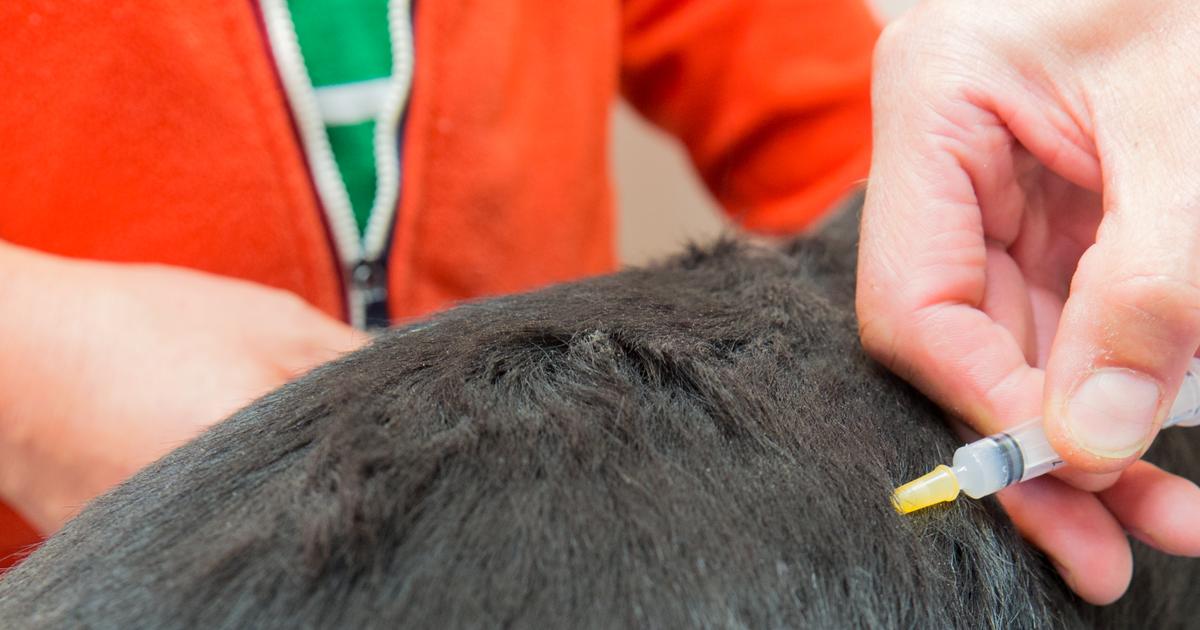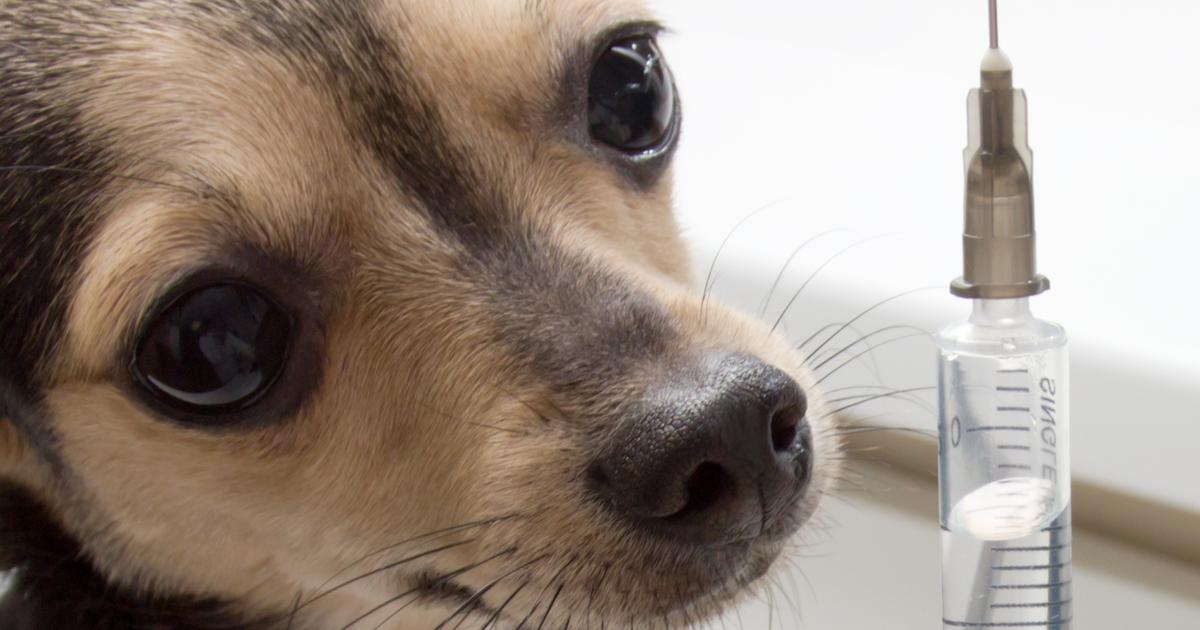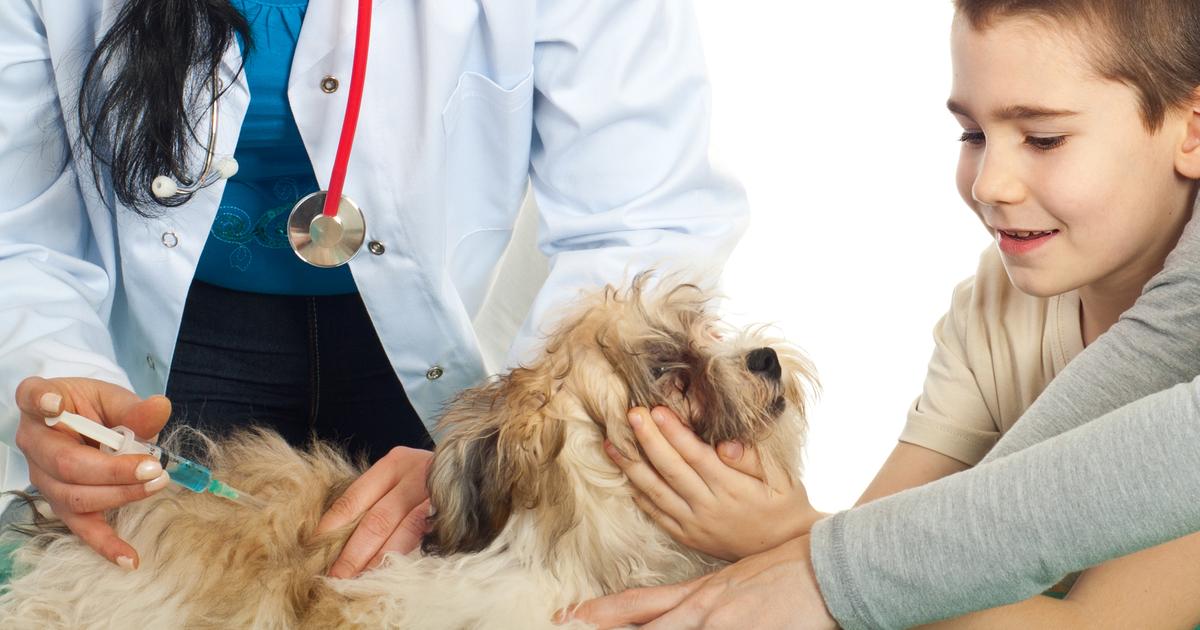Guide To Vaccinations For Dogs
Vaccinating your dog is essential to keep it healthy and happy throughout its life. Vaccines provide your canine companion with vital protection from diseases that could otherwise prove fatal. Certain vaccines, referred to as 'core vaccines,' are required by state and local authorities. In addition, based on breed, lifestyle, health, age, and location, a veterinarian might recommend a 'non-core vaccine' that offers protection from other diseases. Vaccination starts when puppies are six weeks old and continues throughout the dog’s adult life. It’s important for you, as a responsible dog owner, to know more about the most important and commonly administered canine vaccines.
Rabies

Rabies is one of the most dangerous infections for dogs. In addition, because it can be transmitted to other mammals—including humans—your dog needs to stay current on this vaccine. The disease is one hundred percent fatal and there is no treatment, which means prevention is the only solution. For these reasons, this is a core vaccine for your dog. Not only is it required for licensing, most grooming, boarding, walking, socializing, sitting, and other care facilities will only serve a dog if it is current on this vaccine. For a long time, the only available vaccine for this virus was a one-year shot, administered around three months old (the precise age is determined by state law) in a single dose and then in single-dose boosters every year after. Now, however, a three-year shot is available. This vaccine is first administered around the time the puppy is three months old and then in a single-dose booster one year later; after that, another single-dose booster is administered every three years.
Read more about major vaccinations for dogs now.
Canine Parvovirus

Canine parvovirus (CPV) is a highly contagious gastrointestinal virus spread from dog to dog through direct contact or contact with contaminated feces or vomit. If contracted, canine parvovirus requires immediate hospitalization and treatment with intensive care, medications, antibiotics, and immune system therapy. Without adequate treatment, canine parvovirus is fatal in ninety-one percent of cases. This virus is particularly dangerous for puppies under six months old, but unvaccinated or incompletely vaccinated dogs are also at risk. The canine parvovirus vaccine is first given in a battery of three doses, administered between six and sixteen weeks of age, followed by a booster one year later and then subsequent boosters every three years. For adult dogs who have not been vaccinated, or whose vaccination has lapsed, the first battery must be two doses administered approximately three to four weeks apart.
Continue reading to learn more about vaccinations for dogs now.
Canine Distemper

Canine distemper is an aggressive virus that attacks multiple parts of the dog’s anatomy, including the respiratory, nervous, and gastrointestinal systems, as well as the eyes. It can also be carried by other animals, including foxes, coyotes, raccoons, skunks, and ferrets, which means your dog can pick it up from local wildlife. The virus is typically spread through airborne exposure, but it can also be transmitted by shared food, water bowls, or equipment, as well as bodily fluids and feces. It is usually fatal, and dogs that do survive it will almost always suffer some kind of permanent nervous system or brain damage. In puppies, three doses are given between the ages of six and sixteen weeks, followed by a booster one year later and then another booster every three years after that. For adult dogs who need the vaccine, it is first administered in two doses, given three to four weeks apart, followed by boosters every three years.
Get more information on vaccinations for dogs now.
Canine Hepatitis

Infectious canine hepatitis (ICH) is caused by the adenovirus CAV-1, which infects the upper respiratory tract and inflames the liver, potentially leading to death. It can be transmitted through contact with contaminated urine, feces, or saliva, and is carried by wild animals as well, such as foxes and coyotes. There is no treatment for canine hepatitis, though the symptoms can be somewhat managed as the virus runs its course. If the infection is severe, or if the infected dog is particularly vulnerable (due to age or another medical condition), it will require hospitalization and intravenous fluid therapy. The vaccination for infectious canine hepatitis is the adenovirus type 1 vaccine, which is administered to puppies in three doses between the ages of six and sixteen weeks, followed by a booster one year later and then another booster every three years after that. Adult dogs starting or catching up on the vaccine begin with two doses delivered three to four weeks apart, followed by a booster every three years.
Learn more about vaccinations for dogs now.
Bordetella Bronchiseptica

Bordetella bronchiseptica, better known as kennel cough, is an infectious bacterium related to whooping cough in humans. The bacteria causes a respiratory tract inflammation identifiable by a sharp, harsh cough. It is highly contagious through the air or by contact with an infected animal or contaminated object. For this reason, it is often seen in dogs that are boarded or frequently in social environments, such as dog parks and shows. Kennel cough typically lasts one to two weeks and the only treatment required is to manage symptoms. In severe cases, antibiotics might be prescribed. Dogs who are at risk due to age (puppies are particularly vulnerable) or a compromised immune system might develop pneumonia as a side-effect. The vaccine comes in three forms: intranasal, oral, or injected. Puppies require two doses for initial protection; for adults, one dose of the intranasal or oral versions is required, or two of the injected form. The booster is given annually or every six months for dogs that are frequently boarded.







